
Welcome to the 5-0
Celebrating CBA Members Licensed Since 1975
September/October 2025
Download This Article (.pdf)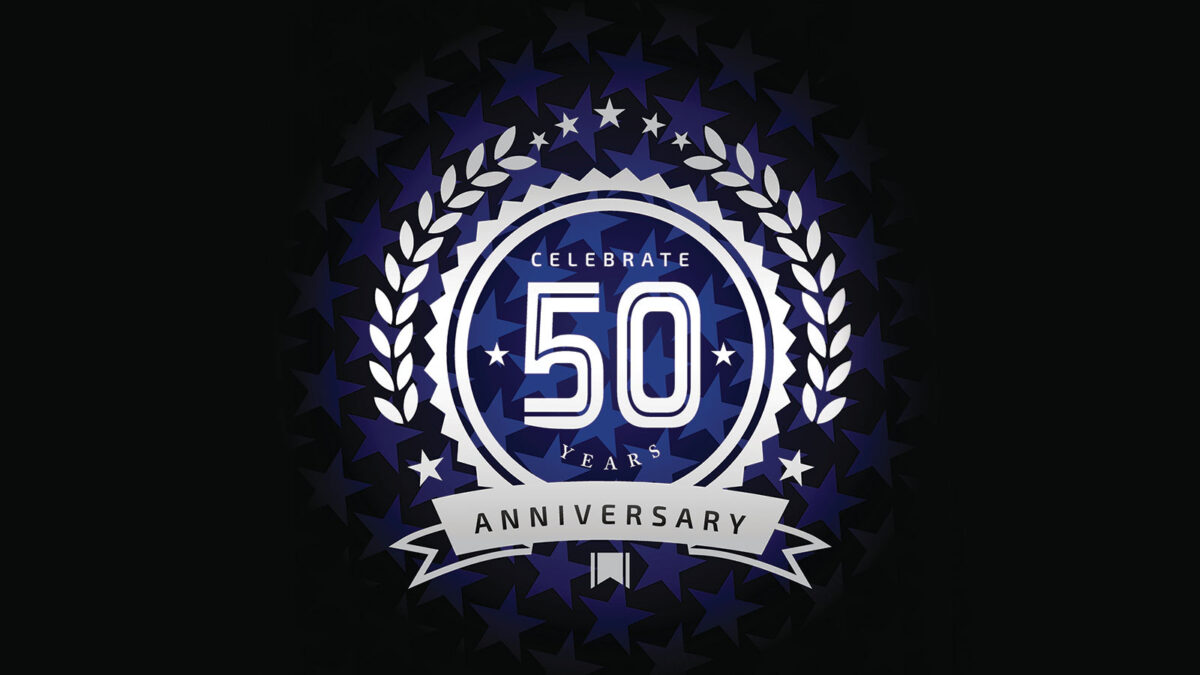
These profiles are part of a series celebrating CBA members who have been practicing law for at least 50 years. Many thanks to CBA member Marjorie Nanian for volunteering to write this series to help us showcase the experiences of these valued members of the Colorado legal community.
Stephen H. Cook
License Date: 10/6/1975
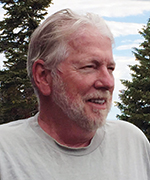 Stephen H. Cook believes he stumbled into becoming a trial lawyer, but he doesn’t regret it. As one of four children of academic parents, it was expected that he would go to law school, especially since his oldest brother graduated from Harvard Law School.
Stephen H. Cook believes he stumbled into becoming a trial lawyer, but he doesn’t regret it. As one of four children of academic parents, it was expected that he would go to law school, especially since his oldest brother graduated from Harvard Law School.
Cook began college at the University of California in San Diego. Shortly after becoming a single parent during his junior year, he returned home to Boulder, where his parents helped take care of his son while he completed his undergraduate degree.
He worked part-time while attending school, including one job teaching preschool. After spending a year working at Rosebud Reservation in North Dakota, he went to law school.
Cook moved to Washington, DC, to attend George Washington University Law School for a year, but he missed his son and wasn’t enjoying the experience. So, he transferred to the University of Colorado Law School in Boulder in 1975. It was there that Cook was influenced by Allen Friedman, a staff attorney for Colorado Law’s Legal Aid and Defender Program. The program allowed students to appear in court and handle traffic and DUI cases. Friedman instilled in Cook a sense of excitement to be in court.
Following his passion for litigation, Cook accepted his first job after law school with a small law firm run by Boulder trial attorney Jack Taussig. After a year and a half, Cook accepted another position with a four-lawyer firm and served as second chair in trials. Then in 1978, he branched out on his own to practice personal injury law. Nine years later, Cook remarried and had two more sons and a daughter.
Cook’s greatest achievement was when he was lead counsel in a toxic emissions case, representing four families in Orjias v. Louisiana Pacific Corp., 31 F.3d 995 (10th Cir. 1994). It took seven years for the case to go to trial in federal court. The defendant was a lumber company that built a factory in the middle of nowhere, chipped the wood there and mixed it with a chemical glue to create a waferboard similar to compressed fiberboard. However, the process emitted toxins, and four families got sick. After a 12-day trial, Cook received a $3.2 million verdict, the largest toxic contamination verdict in Colorado at that time.
In reflecting on the changes in the legal practice the Lafayette attorney has witnessed in the past 50 years, Cook comments that regrettably there has been an emphasis on steering the resolution of cases away from the courtroom into mediation. “The practice has become more regulated and bureaucratic.” He also predicts that litigation will become an administrative law process, in which juries will be eliminated. “This is bad, because the notion of a jury is the foundation of our legal system,” says Cook. “It’s a system that works well for outcomes.”
Cook’s advice to future lawyers is to work in a law office to figure out what kind of law you want to practice, because each area of law has its limitations.
John W. Gaddis
License Date: 10/6/1975
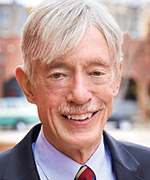 John W. Gaddis believes that he is among the last of the full-time general practitioners. Graduating from the University of Colorado Law School in 1975, he began his career in a small firm in his hometown of Longmont, where his father was the mayor. After two years, he and two of his law school classmates joined the firm that now bears his name and where he still practices today, Lyons Gaddis.
John W. Gaddis believes that he is among the last of the full-time general practitioners. Graduating from the University of Colorado Law School in 1975, he began his career in a small firm in his hometown of Longmont, where his father was the mayor. After two years, he and two of his law school classmates joined the firm that now bears his name and where he still practices today, Lyons Gaddis.
Graduating with a history degree, the athletic Gaddis wasn’t sure what his next step would be, but his brother Larry was his inspiration. Larry had taken the LSAT while serving in the Peace Corps, so Gaddis followed in his footsteps and took the LSAT too.
Looking back through his 50 years of practice, Gaddis feels he has been incredibly lucky and wouldn’t change a thing. However, there have been many changes to the law profession, especially in the area of technology. He remembers when stenographers used shorthand when taking dictation and typists used carbon paper to create duplicate copies. Now, computers and copy machines have taken over those roles. He also bemoans the loss of personal contact with clients and judges. “Attorneys used to be able to walk into a courtroom and see a judge, just to chat,” he reflects. “Now, it’s virtually impossible to do that today due to security concerns.”
Gaddis feels lucky to have seen the emergence and growth of a new area of law—mediation and arbitration. He recalls how in 1984 in Boulder, former Chief District Judge Richard Dana and 20th Judicial District Administrator Jerry Lockwood, later joined by former Colorado Supreme Court Justice William Neighbors, started the Judicial Arbiter Group (JAG). At the time, Gaddis couldn’t believe that people would pay for this type of service. JAG now consists of more than 25 former trial and appellate judges who have helped tens of thousands of individuals and businesses resolve legal conflicts.
Gaddis suggests that aspiring lawyers work in a law firm before going to law school to gain an understanding of what attorneys do. Once in law school, he recommends joining a local bar association and attending events to network with other attorneys as a means to obtain a job. Both of Gaddis’s sons worked for his law firm before branching out to other areas of law; one became general counsel to the world’s largest meat producer, and the other pursued a career in mergers and acquisitions. His daughter chose not to go to law school, even though she was admitted, and became an educator instead.
One of the unique perks of Lyons Gaddis is that they offer sabbaticals for a couple of months. This has allowed Gaddis to travel with his wife, Sally, who was also his grade-school sweetheart.
Gary S. Joiner
License Date: 10/6/1975
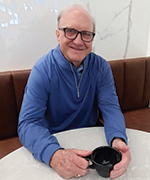 Gary S. Joiner originally wanted to become a dentist, but the science classes in college didn’t interest him. So, he decided to go to law school at the University of Denver after graduation.
Gary S. Joiner originally wanted to become a dentist, but the science classes in college didn’t interest him. So, he decided to go to law school at the University of Denver after graduation.
Upon passing the bar exam in 1975, the Denver native worked for a solo practitioner in Boulder. For three years, he did a little of everything. Then at a CLE, he ran into a former classmate, Oliver Frascona, who convinced him to join his firm in Denver—now called Frascona, Joiner, Goodman and Greenstein. It is there that he began to specialize in business law, including transactional, securities law, and syndication matters. One of Joiner’s notable projects was doing the initial franchise work for Re/Max.
Ten years ago, tragedy struck the firm when the 67-year-old founder, Frascona, died in an airplane crash in which he was the pilot. This unexpected event had a huge impact on Joiner and impressed upon him just how short life really is. So, he withdrew from the partnership and became of counsel to the firm to give himself more flexibility with his time.
Technology allowed Joiner to work part-time from a different state, so he moved to Georgia for a change of pace and scenery, but moved back after five years because the summers were too hot.
In 1984, the firm erected a building in Boulder to house its lawyers and then rented out the extra space. For 40 years, the building kept the firm together, but then COVID hit and everyone went remote. “This worked out well financially for the firm, and I now see that remote work is the future of law.”
Joiner believes that it’s hard to be a general practitioner and advises future lawyers to instead identify an area of law that interests them and to find partners to share the ups and downs of practicing law. “The hardest part of being a lawyer is the business aspect. The hourly billing process becomes cost prohibitive and, as a lawyer, you can’t always do the things you want to for the client. You want to be fair, but the more time you spend on a case, the more you bill, which results in inherent time and money conflicts.”
Joiner’s career path is a long way from a dentist’s chair, but he has no regrets. His practice has allowed him the opportunity to visit China, Hungary, and Brazil, setting up business structures for clients to do business in the United States. He’s had an interesting journey, and he hopes to keep going a little longer.
Jeffrey J. Kahn
License Date: 10/6/1975
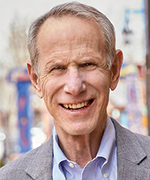 Jeffrey J. Kahn left Hartsdale, New York, for better skiing and to attend law school. As an undergraduate majoring in economics, he wasn’t sure what he wanted to do, but he knew that he didn’t want to become an economist. So, together with a bunch of his friends, he took the LSAT. Not sure if he could get into law school, Kahn hedged his bets and applied to several schools and even contemplated a plan B—to work for a moving company for a year until he could be admitted. Fortunately, he didn’t have to move furniture and was admitted to the University of Colorado Law School right after graduating from college.
Jeffrey J. Kahn left Hartsdale, New York, for better skiing and to attend law school. As an undergraduate majoring in economics, he wasn’t sure what he wanted to do, but he knew that he didn’t want to become an economist. So, together with a bunch of his friends, he took the LSAT. Not sure if he could get into law school, Kahn hedged his bets and applied to several schools and even contemplated a plan B—to work for a moving company for a year until he could be admitted. Fortunately, he didn’t have to move furniture and was admitted to the University of Colorado Law School right after graduating from college.
During his first year, Kahn was paired up with another student, John Gaddis, for an appellate project similar to moot court. Coincidentally, Kahn later joined Gaddis at his law firm in 1986. But, prior to that, Kahn took a job as a research clerk for the Native American Rights Fund in Boulder. After nine months, he moved to a general practice civil firm in Wheatridge that represented contractors and mining companies.
Wanting more courtroom experience, Kahn went to work for the Attorney General’s Office in the water unit. This is where he developed his specialty in water law. One of his most memorable cases occurred early in his career, when Kahn prevented the groundwater in South Park from being removed from the valley by an outside group.
Kahn takes his inspiration from his parents, who were children of the Holocaust who had to start their lives over in America. From them he learned the value of hard work and of setting a goal. Kahn also learned a legal lesson from his attorney mentors—to take a step back and look at the big picture and not get too emotionally involved in a case. “Sometimes clients only want sympathy or an emotional victory.”
His advice to law students is to find an area of law that you find interesting and become engrossed in it. But don’t forget to take some time off and travel. “If you ever become an employer,” concludes Kahn, “then always hire people smarter than you. This is the recipe for success.”
Using his favorite sports analogy, Kahn concludes with this advice, “Before you start a race, know where the finish line is.”
Michael S. McCarthy
License Date: 10/6/1975
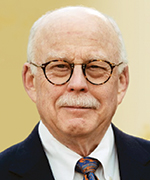 Michael S. McCarthy was a transplant to Colorado. He came here for the weather and with a girlfriend, from Springfield, Illinois, the home of President Abraham Lincoln and where Barack Obama announced his presidential run.
Michael S. McCarthy was a transplant to Colorado. He came here for the weather and with a girlfriend, from Springfield, Illinois, the home of President Abraham Lincoln and where Barack Obama announced his presidential run.
Initially, he wanted to become a doctor, but he soon discovered that his skill set was in writing and speaking, so he went to law school instead. However, medicine wound up playing a role in his life when he married his second wife, Dr. Marilyn Dougherty.
In 1975, McCarthy graduated from the University of Colorado Law School, and 50 years later, he received the law school’s highest alumni award, the William Lee Knous Award. McCarthy was presented the award on March 20.
McCarthy began his career in a small firm in Denver. “All the partners in the seven-member firm became important in my career,” McCarthy reflects. “They served as my mentors and taught me how to practice law.” The present firm of Faegre Drinker became the successor firm where McCarthy developed his specialty as a trial attorney for business and commercial clients.
Two of his most memorable cases involved the newly formed Colorado Rockies Baseball Team and the Douglas County School Board. In the first case in 1994, one of the team’s investors was caught embezzling a huge sum of money from his company. He later filed for bankruptcy and had to sell his share in the baseball team. McCarthy represented the Rockies, and the issue concerned the value of shares for a team that hadn’t even played their first game. The case went up on appeal, and McCarthy prevailed all the way up to the Sixth Circuit Court of Appeals.
The second case reverberates today. McCarthy represented the parents and children of the Douglas County Schools, pro bono, regarding the board’s adoption of a voucher program that funneled tax dollars to private schools. The case went to the Colorado Supreme Court in 2015, where McCarthy’s clients prevailed, and the voucher system was struck down as a violation of the state’s constitution.
Despite his legal victories, McCarthy is most proud of the wonderful mentoring relationships he’s been involved with. “Many of my mentees have gone on to do wonderful things,” he beamed, noting that one became a district court judge and another became an antitrust attorney in the Justice Department.
McCarthy reflects on the changes in the practice of law: “There were a lot more small and mid-sized law firms when I began practicing, but gradually more attorneys started working for bigger firms.” McCarthy’s firm of Faegre Drinker is a case in point: it has expanded to 1,200 attorneys. “I believe this consolidation of attorneys will continue. Firms will get bigger and more focused on financial achievement.”
He also foresees the growth of AI and other technology in the law practice. “When I started out, I used a Dictaphone, which was transferred onto paper by a typist. Now attorneys generate their own work product on their keyboards.”
His advice to law students is to take challenging classes in law school and to work hard. “If you don’t have it, then develop a good work ethic,” concludes McCarthy. He also suggests finding a good mentor who can help you learn how to practice law. This advice worked out well for his daughter, who grew up watching her dad’s trials and is now a litigator in Omaha, Nebraska.
Gary L. Palumbo
License Date: 10/6/1975
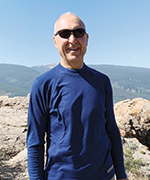 “Things change,” states Gary L. Palumbo, “and I look at changes as opportunities for the future.” This forward-thinking lawyer, originally from Canandaigua, New York, in the Finger Lakes area, embraced change when he came to Colorado to ski, from Notre Dame University in Indiana. “When I saw the blue sky in Boulder during the winter, versus the grey skies of the Midwest, I knew I would never leave,” recalls Palumbo.
“Things change,” states Gary L. Palumbo, “and I look at changes as opportunities for the future.” This forward-thinking lawyer, originally from Canandaigua, New York, in the Finger Lakes area, embraced change when he came to Colorado to ski, from Notre Dame University in Indiana. “When I saw the blue sky in Boulder during the winter, versus the grey skies of the Midwest, I knew I would never leave,” recalls Palumbo.
He applied to the University of Colorado Law School for two reasons—first, because “the law seemed like it would be a dynamic profession,” and second, because there was not much you could do with an English major except teach. When Palumbo graduated and passed the bar exam, he was in the second class to receive a bar number.
As the oldest of six children in an immigrant Italian family, Palumbo didn’t know much about the legal profession, since there were no attorneys in his family. “There was a lot of food insecurity in my family,” reflects the attorney. “I remember having a paper route and turning over the money to my mom.”
When World War II broke out, his dad enlisted and became a “90-day Wonder.” This was an accelerated officer training school, and his father became a second lieutenant in charge of a two-tank division in Germany. Ironically, his father ran into his brother-in-law (his sister’s husband) in a prisoner of war concentration camp.
“My father was my inspiration,” explains Palumbo. “He was awarded the Purple Heart, and when he returned to the states, he attended a trade school under the Servicemen’s Readjustment Act of 1944, more commonly known as the GI Bill, for heating and air conditioning.”
Knowing his roots propelled Palumbo to take advantage of life’s opportunities. He began his law career clerking for the same small law firm where he works today. The firm, Bayer and Carey, P.C., was founded in 1932. As a tort litigator, Palumbo provides personal defense for policyholders, including small business owners, farmers, and ranchers. “Every case is different because every policyholder is different,” says Palumbo. An important part of his training was interacting with other attorneys and judges outside of the courtroom, so he joined the Law Club of Denver and the CBA.
As a skier, Palumbo volunteered to handle all the firm’s cases in the mountains and fondly remembers the ski trips and dinners his firm hosted. Ever the Renaissance man, Palumbo also participated in five or six productions of the Colorado Opera, in nonspeaking roles. “I guess trial attorneys are really frustrated actors,” he smiles.
When asked about changes within the legal profession, Palumbo lamented the depersonalization of the profession. “There isn’t the personal contact there used to be.” Attorneys used to go to court for pre-trial conferences, and now that’s done over Webex. The same with settlement and mediation conferences. Even depositions are now done remotely. Settlement of cases is more the norm.
“One advantage of change has been in the area of diversity,” observes Palumbo. “There are more women in the law.” He predicts that the future of law lies with AI. If used right, it can sort through things quicker. “However, I don’t think it will change trial practice because you still have to stand up and talk to jurors.”
His advice to future lawyers is to have an open mind and make the most of every opportunity. “There’s so much you could do with a law degree—the law bestows great knowledge on its holder.”
Barre M. Sakol
License Date: 10/6/1975
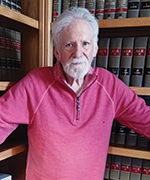 Barre M. Sakol is a collector. His office in Boulder showcases his passion. There are framed Marvel Comics on the wall with autographed trading cards, such as a Stan Lee card. Superhero models populate his credenza. Spider-Man and Iron Man were his favorites growing up. He also has photos and figurines of wolves, footballs, and baseballs around his office. One can get lost in the memorabilia of times gone by and forget that you are in a lawyer’s office.
Barre M. Sakol is a collector. His office in Boulder showcases his passion. There are framed Marvel Comics on the wall with autographed trading cards, such as a Stan Lee card. Superhero models populate his credenza. Spider-Man and Iron Man were his favorites growing up. He also has photos and figurines of wolves, footballs, and baseballs around his office. One can get lost in the memorabilia of times gone by and forget that you are in a lawyer’s office.
Born in Morton Grove, Illinois, a suburb of Chicago, Sakol attended high school with Hillary Rodham, now Hillary Clinton. She was a senior while Sakol was just a freshman.
The 1960s and 1970s were the era of the Vietnam War, but Sakol wasn’t drafted. Instead, he attended law school at the University of Illinois Urbana–Champaign, graduating in 1973.
In 1975, Sakol moved to Colorado, where he worked for a big firm for a year and then clerked for a federal district court judge, William Neighbors. After two years, he moved to a small firm before striking out on his own, specializing in family and criminal law. Ironically, Sakol found his accounting undergraduate degree helpful in understanding the finances involved in divorce cases.
Sakol credits his strong moral fabric to his parents. “My father was uneducated and had overcome polio. He was my inspiration. He opened a photography studio, even though he didn’t know much about the business, sold it after a while, and then became a sales representative to gas stations to support his family of four kids and a wife.”
Sakol, like his parents, believes it’s important to put people first. “I treat my clients with respect,” he says. “I give free consultations and provide them with a website to explore other attorneys before they hire me.” Sakol cautions new lawyers not to let the desire to become successful overcome the desire to do what is right. “Follow your conscience,” Sakol philosophizes. “Too many attorneys have lost sight of the right thing to do in their zeal to win.”
When the soft-spoken attorney is having a bad day, he rereads his childhood comics and reacquaints himself with heroes who do the right thing.


